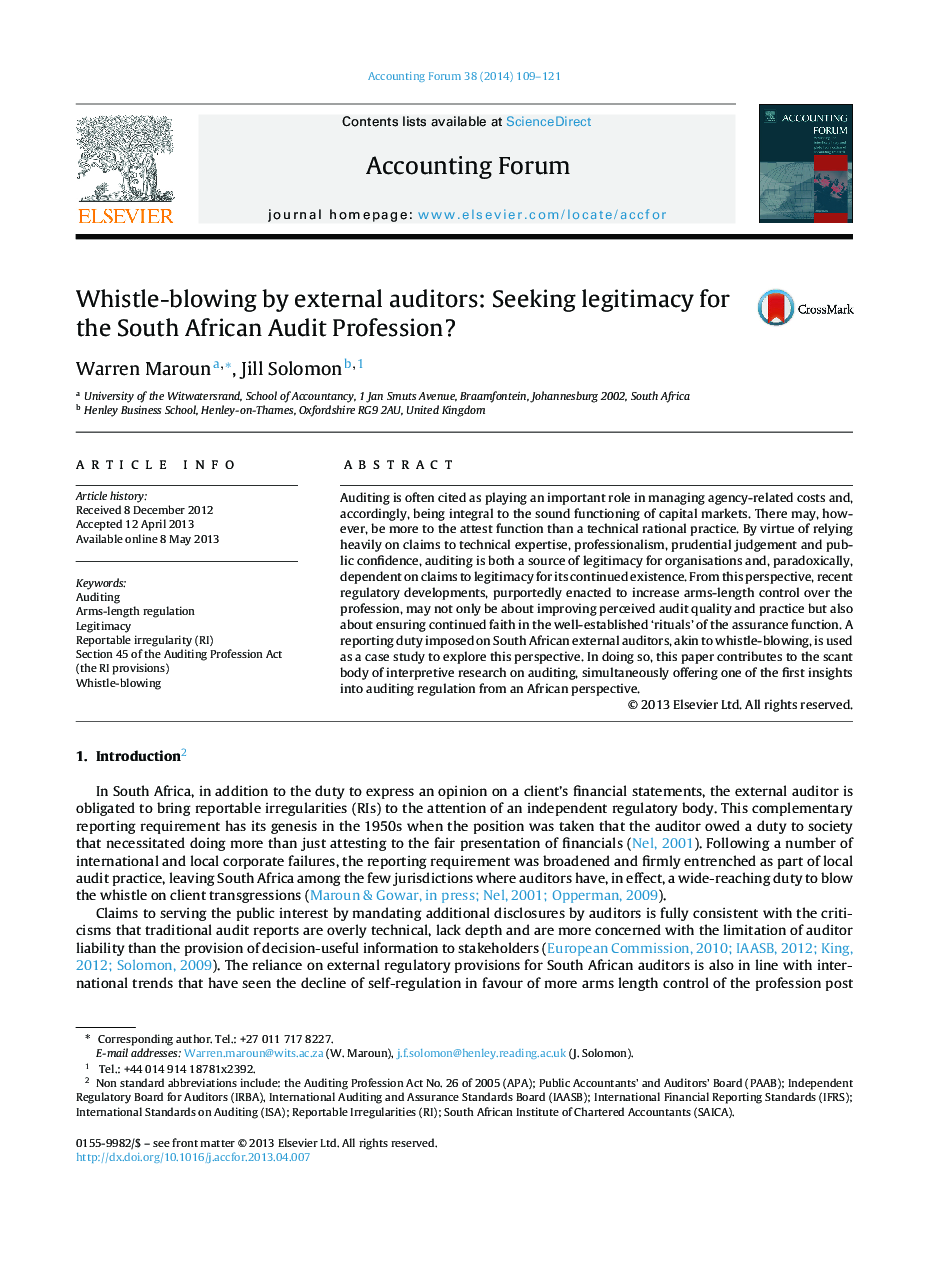| Article ID | Journal | Published Year | Pages | File Type |
|---|---|---|---|---|
| 1003730 | Accounting Forum | 2014 | 13 Pages |
•The research provides one of the first interpretive accounts of auditing in an African setting.•An institutional-inspired perspective on auditing in South African is provided focusing on a duty to bring reportable irregularities to the attention of an independent regulatory body.•At the heart of this whistle-blowing requirement are claims to pragmatic, moral and cognitive legitimacy.•The findings provide further evidence in support of claims to auditing being a social construct and, like most institutions, both able to confer legitimacy while also being dependent on claims to legitimacy for continued existence.
Auditing is often cited as playing an important role in managing agency-related costs and, accordingly, being integral to the sound functioning of capital markets. There may, however, be more to the attest function than a technical rational practice. By virtue of relying heavily on claims to technical expertise, professionalism, prudential judgement and public confidence, auditing is both a source of legitimacy for organisations and, paradoxically, dependent on claims to legitimacy for its continued existence. From this perspective, recent regulatory developments, purportedly enacted to increase arms-length control over the profession, may not only be about improving perceived audit quality and practice but also about ensuring continued faith in the well-established ‘rituals’ of the assurance function. A reporting duty imposed on South African external auditors, akin to whistle-blowing, is used as a case study to explore this perspective. In doing so, this paper contributes to the scant body of interpretive research on auditing, simultaneously offering one of the first insights into auditing regulation from an African perspective.
